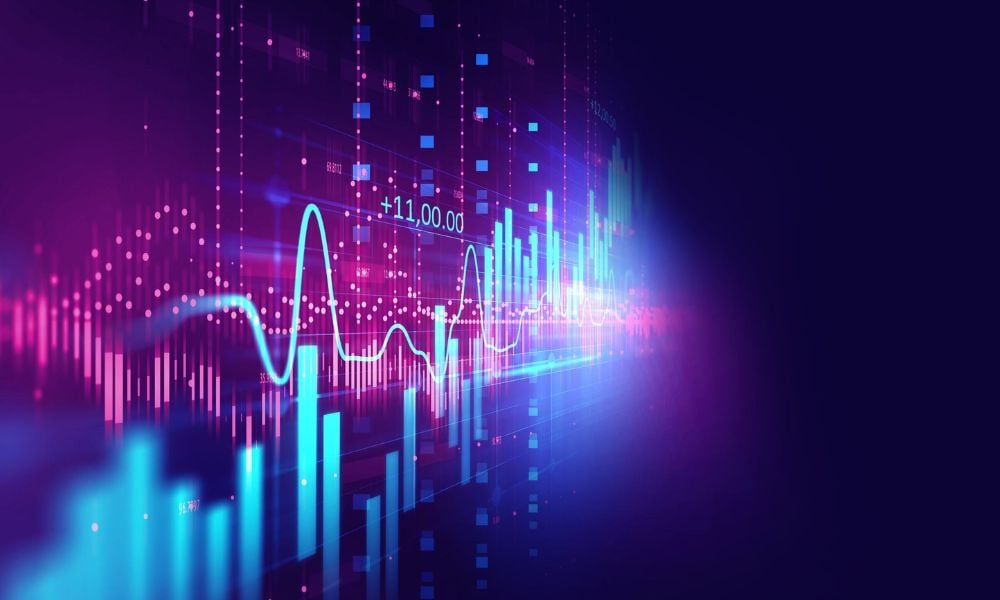'There are still many moving parts' with CPI, bank rate hikes, and market pullback, says CIO

While there is a big debate as to whether we are already in a recession, it is still too early to tell, and the market is already repositioning while watching several other factors, including how the central banks deal with inflation, says one chief investment officer.
“You don’t know until it passes whether we’ve hit a recession or not,” Greg Taylor, chief investment officer of Purpose Investments, told Wealth Professional this week. “But, there’s also a debate as to whether this is a technical recession, or a really severe one, and it’s probably right now bordering on more technical than anything else. I think that’s some of the market sell-offs.
“Some of the slowdown is really just that the last few years have been so fake from an economic point of view, given the easy money out there. We’re taking off that froth, and that has to come out of the system. That can be causing this pullback in markets and also a technical recession, but it doesn’t feel as real as others because it’s more just working it off.”
Taylor noted there had been a 20% market pullback in the U.S., which has helped to reduce a lot of the excess in the system. Now, he said the biggest problem is the stock market sell-off has been all in valuations. Analysts haven’t picked down their earning estimates yet, so the next few weeks will tell if companies are able to withstand the storm or will take those numbers down.
“If we do get another severe leg down in the market, it’s going to come from earnings revision negative versus anything else,” he said, though he noted that summer markets can be volatile. “The next few months are going to be tough to call as we get to earnings season and see if this commodity pullback really starts to peak out on inflation concerns. By the time we get to the fall, there’s a good chance markets can be a lot more comfortable with what the central banks are doing and how they’re battling inflation, and that could be setting up a nice bounce.”
Taylor said the market’s perception is that the Federal Reserve is going to be more aggressive than anticipated two weeks ago, but it’s also starting to get more comfortable that commodities have pulled back. Copper and oil have both dropped about 25% in the past month, which will help to lower the consumer price index (CPI) and bring it more in line with the central banks’ desire.
“The more we can get to peak CPI, the more we can get past the point where the Fed has been the most hawkish,” he said. “As soon as that happens, I think we could be setting up for a decent second half of the rally. That’s where investors are noticeably concerned right now because we’ve seen a lot of big sell-off negative numbers for the first half of the year.”
Taylor said this isn’t the time to sell since we’re getting closer to the end of the sell-off, and can position for when things start to bounce back.
He also felt the central banks should have been hiking rates last summer, so they’re now being aggressive about addressing inflation, given that it’s climbed to over 8%.
“I think the big change is just how aggressive they need to be and for how long and the commodities pullback, and that’ll mean that the pain should be a lot shorter than some expected, and that would be good news for our markets” he said.
Given that the Bank of Canada was announcing its next rate hike today and the U.S. CPI numbers were also being released today, “he said, “things can change quickly, but it feels like the market is starting to feel a little more comfortable that central banks are getting closer to neutral than they have been in awhile.”
When asked whether he expects the central banks to continue to hike rates, Taylor said the Fed wants to bring its rate closer to the CPI rate, which won’t return to 3%-4% anytime soon. If it can reach 4% by year-end, he said the Fed rate could top at 3.%, to provide a tighter spread.
Taylor said the central banks probably want to raise their interest rates so that, when the next crisis comes, they’ve got something to cut. He was more concerned about Europe, which hasn’t started tightening its rates yet, and the rising U.S. dollar, which is “becoming the next big problem for risk assets and that could have an impact on corporate earnings for multinationals.”



